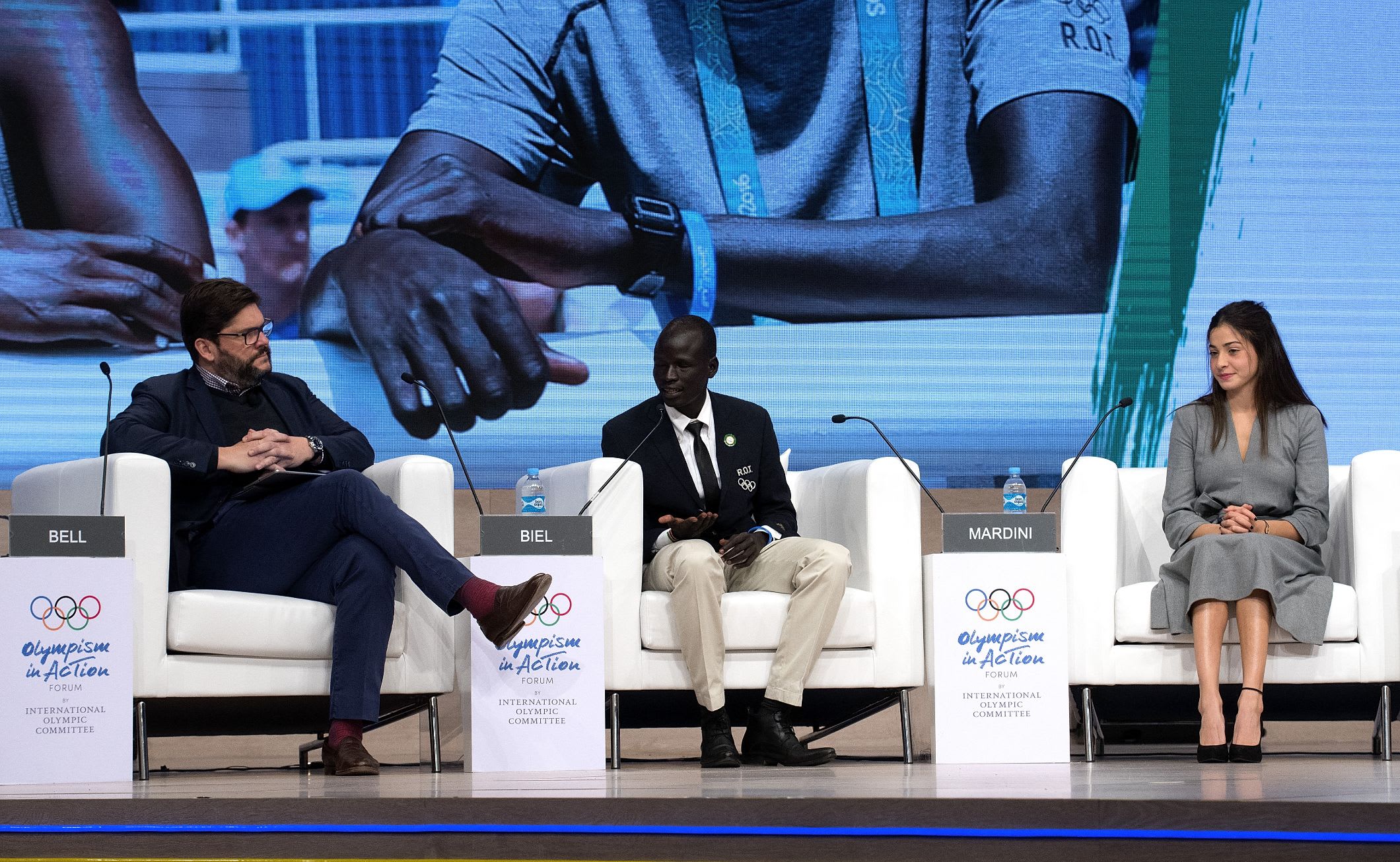Finding a Refuge in Sport
While the world is becoming closer with new innovations in technology, globalisation and urbanisation, it is also splitting apart, impacted by divisions of all kinds, including war, economic and environmental displacement and many other forms of fragmentation. Refugees – of whom there are approximately 68.5 million worldwide – are a marginalised group affected by these forces, but international sport can be both a haven for them and a unifying force of its own.
How to integrate marginalised people like refugees – whether through fielding the first ever refugee team at the Olympic Games or leveraging sport’s contribution to the kind of sustainable development that lifts people on the edges out of poverty – was a main topic of conversation at the Olympism in Action Forum in Buenos Aires.
The IOC has partnered with the UN Refugee Agency (UNHCR) for more than 20 years, with sports projects in more than 45 countries, from Jordan to Ethiopia.
It has stood and continues to stand with refugees, advocating sport as a powerful tool for protection that unites people; promotes a culture of peace, youth development, education, social integration and health; and can protect from risks of abuse, exploitation, neglect and violence.
A tangible example of this advocacy and support was provided later in the Forum, when Jim Bell, the President of NBC Olympics Production, facilitated a discussion between two members of the Refugee Olympic Team that competed in the Olympic Games Rio 2016.

Yiech Pur Biel, originally from South Sudan and a track & field Olympian (and now a Board member of the Olympic Refuge Foundation) noted: “I fled my country, South Sudan, in 2005 when I was only 10 years old, and ended up in Kenya without my parents and siblings. The Refugee Olympic Team showed you can do anything.” At the end of the session, the other eight members of the team came on stage with President Bach for an emotional reunion.
During the Olympic Winter Games PyeongChang 2018, the IOC promoted the Olympic values of excellence, friendship and respect through the “Become the Light” campaign, which is bringing sustainable, solar-powered light solutions to refugee camps, with the Mahama Refugee Camp in Rwanda the first to benefit in the coming months.
Olympic Solidarity has been another important vehicle for supporting marginalised people. In 2017, the body responsible for organising assistance for National Olympic Committees (NOCs) launched a Refugee Athlete Support programme that enables NOCs in countries that admit refugees to identify and support elite refugee athletes. To date, 39 athletes have been assisted through the programme. In addition, the IOC created the Olympic Refuge Foundation to develop sporting activities and social development projects in areas where there are refugees, displaced migrant populations or internally displaced people.
Apart from being an athlete, we have different roles in society. We travel around the world to tell leaders about the circumstances they are facing. To tell our stories. To inspire young people.TRACK & FIELD OLYMPIAN, REFUGEE OLYMPIC TEAM & BOARD MEMBER, OLYMPIC REFUGE FOUNDATION